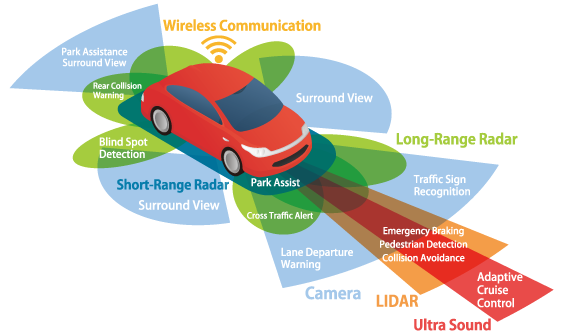Font size:
Print
Driverless Vehicles
Driverless cars could help tame Indian traffic someday
Context: Driverless cars, also called autonomous vehicles (AVs), are emerging as a transformative technology in global transportation. With companies like Waymo already completing over 250,000 paid rides per week by mid-2025 in the US, the potential to revolutionise mobility, reduce accidents, and improve efficiency is now a tangible reality.

How do driverless cars work?
Driverless cars operate using a combination of advanced technologies:
- Sensors & Cameras – Lidar, radar, ultrasonic sensors, and high-definition cameras detect obstacles, traffic signals, pedestrians, and road conditions.
- GPS & Mapping – Real-time GPS integrated with high-definition maps ensures accurate positioning and route planning.
- Artificial Intelligence (AI) – Processes data from sensors to make driving decisions such as speed control, lane changes, and emergency braking.
- Vehicle-to-Everything (V2X) Communication – Allows AVs to share data with other vehicles and infrastructure for improved safety and traffic flow.
What are the benefits of driverless cars?
- Improved Road Safety: Up to 90% reduction in traffic deaths is predicted, as most accidents are caused by human error, like distracted driving, fatigue, or impaired judgment. Autonomous systems can react faster and more consistently than humans.
- Environmental Benefits: 40% reduction in travel time is possible through optimised routing and elimination of traffic waves. Autonomous cars can communicate with each other to avoid congestion and maintain efficient speeds.
- Increased Road Efficiency: Up to 500% increase in lane capacity predicted, as driverless cars can travel closer together safely. This could lead to fewer traffic jams and better use of existing infrastructure.
- Greater Accessibility: People with disabilities, the elderly, and those unable to drive could gain independence and mobility. Reduces reliance on public transport or caregivers.
What are the major concerns associated with driverless cars?
- Safety Risks: Including malfunctioning sensors or software bugs that can lead to accidents, reduced driver attentiveness in semi-autonomous modes due to over-reliance on automation, and fire hazards from lithium-ion batteries during collisions.
- Ethical challenges arise in crisis decision-making—such as prioritising passenger safety over pedestrian safety in unavoidable crashes—and in determining liability among manufacturers, software developers, and passengers.
- Societal Impacts: Include potential large-scale job displacement in trucking, taxi, and delivery sectors, as well as public discomfort over losing control to AI systems.
